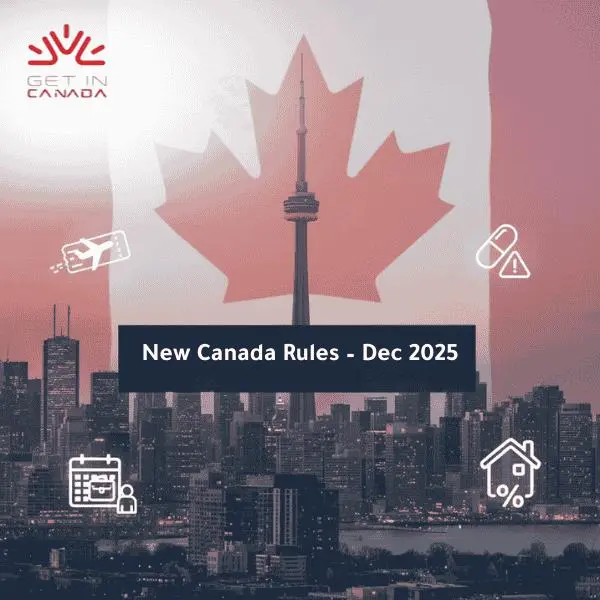Canada Announces Major Reforms to the Temporary Foreign Worker Program: Here’s What You Need to Know
On October 21, 2024, Minister Randy Boissonnault, Minister of Employment, Workforce Development, and Official Languages, announced targeted changes to reinforce the integrity of the Temporary Foreign Worker TFW Program while ensuring it continues to meet Canada’s evolving labour needs. So, if you’re an employer or someone interested in Canada’s labour market, these changes might impact you.

What’s the TFW Program All About?
The Temporary Foreign Worker Program was created to help businesses fill job vacancies when they can’t find qualified Canadians to do the work. It’s not meant to replace Canadian workers, but rather to be a backup when no one else is available. In recent months, the government has been taking steps to make sure this program works as it’s supposed to—helping businesses meet their needs while making sure workers, both Canadian and foreign, are protected from fraud.
What are the changes to the Temporary Foreign Worker Program?
The big changes to the Temporary Foreign Worker Program you need to know about include:
1. Higher Wages for Foreign Workers Starting November 8, 2024, if you’re hiring foreign workers through the high-wage stream, get ready for a change. The minimum wage you need to pay these workers is going up by 20% above the median wage in your province or territory. This means wages could increase by anywhere between $5 and $8 per hour depending on where you’re located.
Why is this happening? Well, the idea is to make sure wages are fair and to encourage employers to look for Canadian workers. If you’re offering more competitive pay, it’s more likely you’ll find qualified workers within the country.
Plus, more jobs will now fall under the low-wage stream, which comes with stricter rules. For example, employers will need to meet tougher standards around housing, transportation, and efforts to hire workers already living in Canada.
2. New Measures to Protect Domestic Workers: One of the biggest reasons for these changes is to make sure Canadian workers aren’t left behind. Minister Boissonnault made it clear that there’s a lot of untapped talent in Canada, especially among certain groups like youth, Indigenous peoples, women, and persons with disabilities. For example, the unemployment rate for youth is still more than double the national average.
3. Enhancing Employer Accountability Beginning October 28, 2024, employers can no longer use attestations from lawyers or accountants to verify their business legitimacy. This measure is intended to increase transparency and ensure that only genuine job offers are approved under the TFW Program.
The government is also working closely with provincial partners to share data and crack down on any misuse of the program.
Basically, the goal here is to make sure the system isn’t being abused. The government wants to make sure that foreign workers aren’t being taken advantage of and that businesses are following the rules.
As Minister Boissonnault stated, “By raising the threshold for high-wage stream positions, we are supporting wage growth for Canadians,” reinforcing the government’s dedication to safeguarding the rights of all workers.
Find out if you are eligible to get in Canada →
Why do you think these measures matter?
Even though most employers are using the TFW Program responsibly, there are always a few who might try to cut corners. These changes are meant to protect workers—both Canadian and foreign—while making sure businesses can still fill jobs when needed. It’s about finding the right balance between meeting labour demands and protecting people’s rights.
And if labour market conditions change again, the Canadian government is ready to make more adjustments to ensure that the program keeps working as it should.
“This change to the Temporary Foreign Worker Program reinforces our commitment to protecting temporary foreign workers, while prioritizing the Canadian workers available to join the labour force. By raising the threshold for high-wage stream positions, we are supporting wage growth for Canadians.”
– Minister of Employment, Workforce Development and Official Languages, Randy Boissonnault
At the end of the day, these reforms are about building a fairer, stronger workforce in Canada. By raising wages, focusing on domestic workers first, and tightening up the rules, the government is taking a step toward ensuring that the TFW Program supports both employers and workers in the best way possible.
So, whether you’re an employer, a job seeker, or just someone interested in how the labour market is evolving, these changes are worth paying attention to. With fairer wages and more protection for workers, Canada is continuing to move toward a more equitable future.











